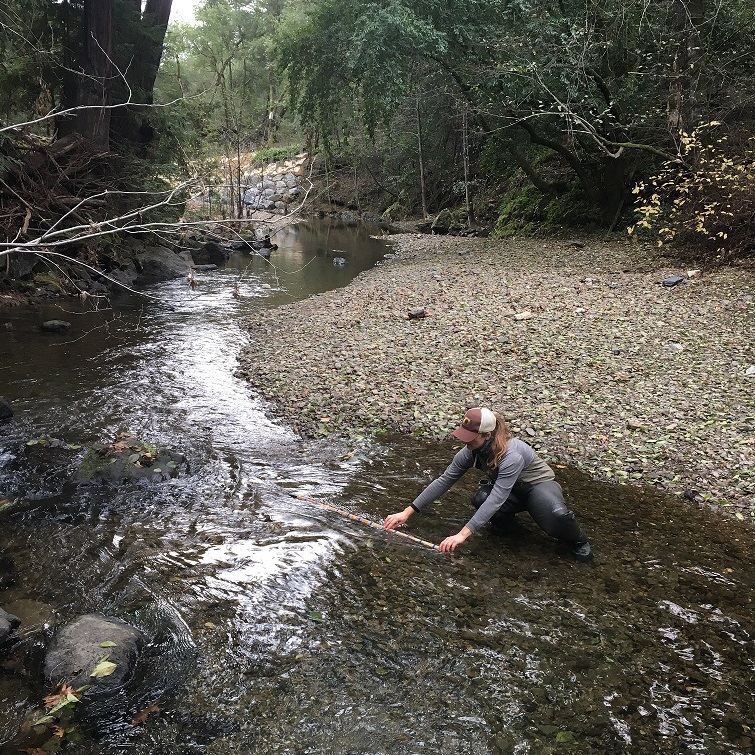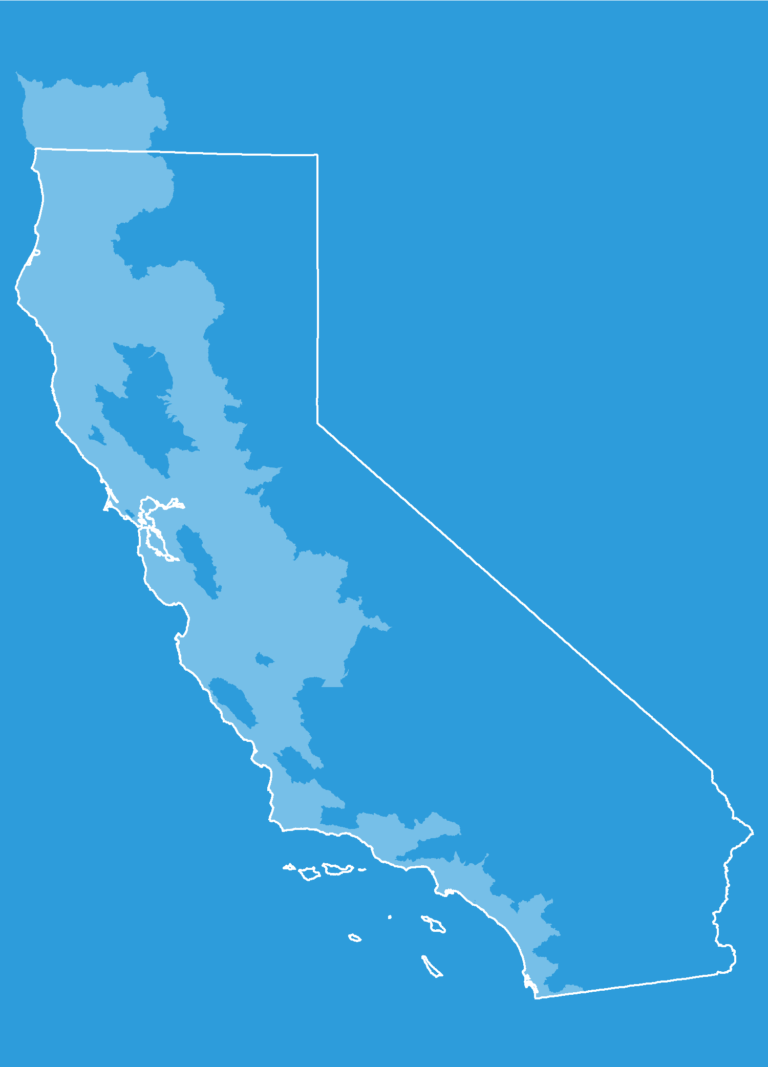The State of Salmon in California
Chinook, coho and steelhead were once tremendously abundant in most of California’s major rivers and streams. As recently as the 1960s, salmon and steelhead were so plentiful in streams that horses would get spooked trying to cross.
Due to water damming and diversions, habitat degradation, climate change and drought, salmon and steelhead populations have declined dramatically. They have even completely disappeared from many streams.
But there is hope. Wildlife and river restoration groups throughout the state are working together to change this trajectory.
The State of Salmon in California presents the problems salmon are facing and their population trends in the state’s major rivers and streams, as well as the transformative solutions that could bring these species back from the edge.
Statewide Status of Salmon and Steelhead
Click on one of the species below to view a statewide map showing where it lives and a graph of how its population numbers have changed over the past decades.
Restoration From Headwaters to the Sea
Coho salmon, Chinook salmon and steelhead depend on all aspects of stream health during their lifecycle. From watershed headwaters to river’s mouth, salmon and steelhead rely on stream well-being for survival and reproduction.
Click below to view a snapshot of salmon and steelhead populations in one of 55 monitored California rivers and streams. Snapshots include statuses and trends of fish populations, maps of historic and present distribution and the salmon community partnerships and projects restoring the salmon habitat.
Russian River
| Year | Population | Trend |
|---|---|---|
| 2022-2023 | 165 |
| Year | Population | Trend |
|---|---|---|
| 2022-2023 | 1,180 |
| Year | Population | Trend |
|---|---|---|
| 2022-2023 | 493 |
 Redd Monitoring © California Sea Grant Russian River Salmon and Steelhead Monitoring Program
Redd Monitoring © California Sea Grant Russian River Salmon and Steelhead Monitoring Program
The salmon conservation community includes people working in non-profit conservation organizations, federal, state, and local resource agencies, water agencies, tribes, and private entities, such as timber companies. Over 100 organizations around the state are listed below that are involved in salmon recovery and habitat restoration efforts.
Learn which restoration partners are working on each river and how by visiting the Salmon Rivers page.














